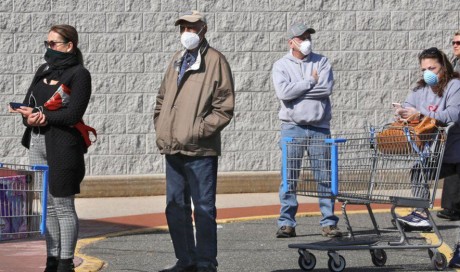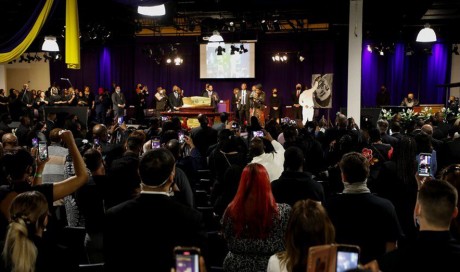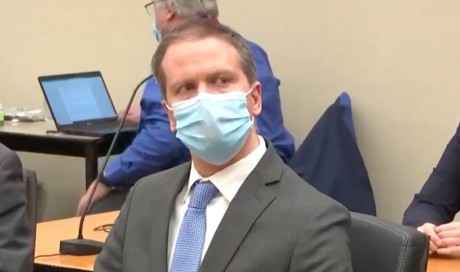Trump also said the outcome might have been different if the synagogue "had some kind of protection" from an armed guard and suggested that might be a good idea for all churches and synagogues.
Offering a different take, Pennsylvania Democrat Gov. Tom Wolf, a Democrat, called the shooting an "absolute tragedy" in a statement that made reference to calls for tighter gun control laws.
"We must all pray and hope for no more loss of life," Wolf said. "But we have been saying "this one is too many" for far too long. Dangerous weapons are putting our citizens in harm's way."
World Jewish Congress President Ronald S. Lauder called the shooting "an attack not just on the Jewish community, but on America as a whole."
In 2010, Tree of Life Congregation — founded more than 150 years ago — merged with Or L'Simcha to form Tree of Life (asterisk) Or L'Simcha.
The synagogue is a fortress-like concrete building, its facade punctuated by rows of swirling, modernistic stained-glass windows illustrating the story of creation, the acceptance of God's law, the "life cycle" and "how human-beings should care for the earth and one another," according to its website. Among its treasures is a "Holocaust Torah," rescued from Czechoslovakia.
Its sanctuary can hold up to 1,250 guests.

Michael Eisenberg, the immediate past president of the Tree of Life Synagogue, lives about a block from the building.
He was getting ready for services when he received a phone call from a member who works with Pittsburgh's Emergency Services, saying he had been notified through scanner and other communications that there was an active shooter at their synagogue.
"I ran out of the house without changing and I saw the street blocked with police cars. It was a surreal scene. And someone yelled, 'Get out of here.' I realized it was a police officer along the side of the house. ... I am sure I know all of the people, all of the fatalities. I am just waiting to see," Eisenberg said.
He said officials at the synagogue had not gotten any threats that he knew of prior to the shooting. The synagogue maintenance employees had recently checked all of the emergency exits and doors to make sure they were cleared and working.
"I spoke to a maintenance person who was in the building and heard the shots. He was able to escape through one of the side exit doors we had made sure was functioning," Eisenberg said.
Jeff Finkelstein of the Jewish Federation of Greater Pittsburgh said local synagogues have done "lots of training on things like active shooters, and we've looked at hardening facilities as much as possible."
"This should not be happening, period," he told reporters at the scene. "This should not be happening in a synagogue."
Just three days before the shooting, Rabbi Jeffrey Myers posted a column on the congregation's website, noting that people make time to attend funerals, but not for life's happy occasions.
"There is a story told in the Talmud of a wedding procession and a funeral procession heading along parallel roads, with the roads intersecting," Myers wrote on Wednesday. "The question asked is: when they meet at the fork, which procession goes first, funeral or wedding? The correct answer is wedding, as the joy of the couple takes precedence. In fact, the funeral procession is to move out of sight so that their joy is not lessened."
Myers ended his column with words that now seem all too prescient.
"We value joy so much in Judaism that upon taking our leave from a funeral or a shiva house, the customary statement one makes (in Yiddish) is 'nor oyf simches' - only for s'machot," Myers wrote. "While death is inevitable and a part of life, we still take our leave with the best possible blessing, to meet at joyous events. And so I say to you: nor oyf simches!"
Share This Post














